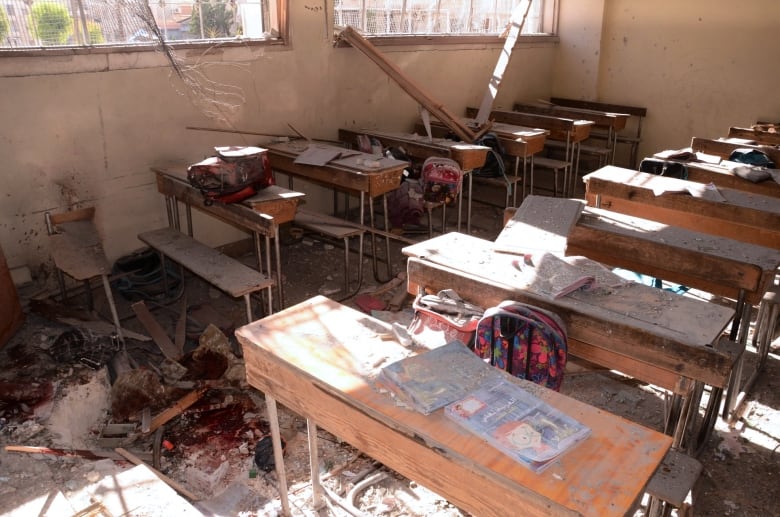UNICEF is determined to keep Syrian kids in class — even if that classroom is in a cave

In addition to the typical thoughts that go through a child's mind, kids in Syria must now think about dodging airstrikes, ISIS checkpoints and the possibility of sniper fire on their route to school.
About 69 children have been killed while attending school in Syria this year. Since the conflict began in 2011, more than 4,000 schools have been the target of attacks. Earlier this week, Unicef released a plea, asking that schools and hospitals no longer be bombed.
This week alone, nine children were killed in airstrikes.
In Idlib province, children are going to school in a cave — the safest location for them to learn.
For many Syrian children, the basic act of going to school is a struggle. But they continue to do so.
Bart Vrolijk, chief of education with Unicef, says, "this is the incredible drive of children, as well as their parents. Despite all the violence going on, they still want to learn, they want to continue their education."
"We have seen attacks on schools in the last couple of weeks. But also earlier this year, from both sides of the fight."
Earlier this week, a school in government-held Western Aleppo and a school in Eastern Ghouta, controlled by the rebel group, were attacked.
He says all parties involved in the conflict are, unfortunately, not protecting children.
Unconventional classrooms
Caves are not the only unusual places where children are going to school. In a besieged area near Homs, classes are being held in parking lots.
Before the violent conflict erupted, Syria had a staunch education system with more than 5.5 million children attending school. In its current state, over 1.7 million are out of school and 1 out 3 schools are not usable or safe.
Vrolijk says he's spoken with three teenagers, between ages 12 and 15, who are risking their lives and passing through areas in Aleppo where they could be under fire of snipers, just to go to school or to a learning centre.

"We have examples of girls with their mothers, who came from Raqqa and walked for three nights trying to avoid the checkpoints of ISIS and go to the examination centre, where the exams take place. We are talking about ninth and twelfth graders," he says.
Despite the risks, Vrolijk says education will help subside radicalisation and prevent a whole generation of Syrian children from getting lost.
"One day, we hope this conflict will end and they will help to rebuild their country," he says.